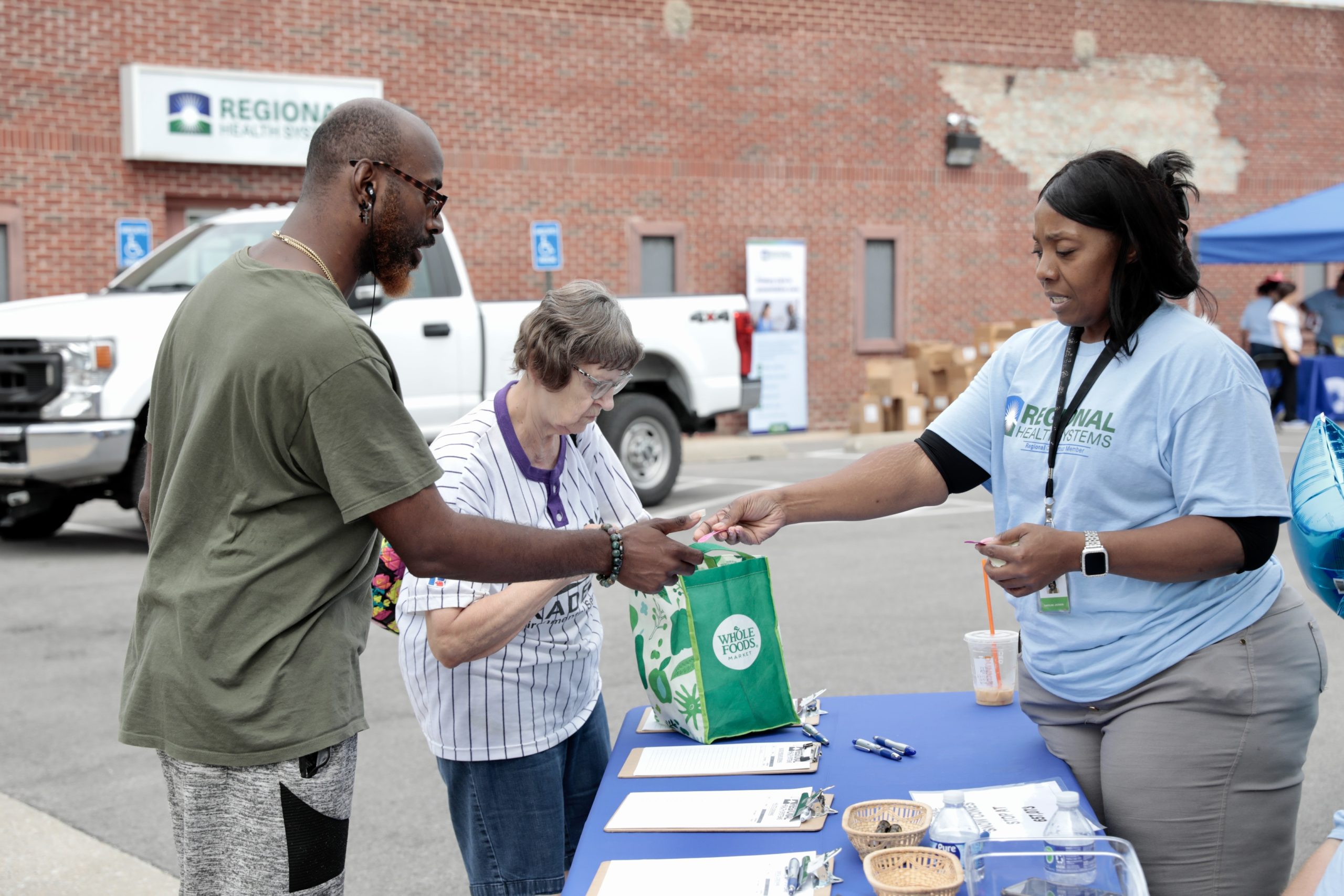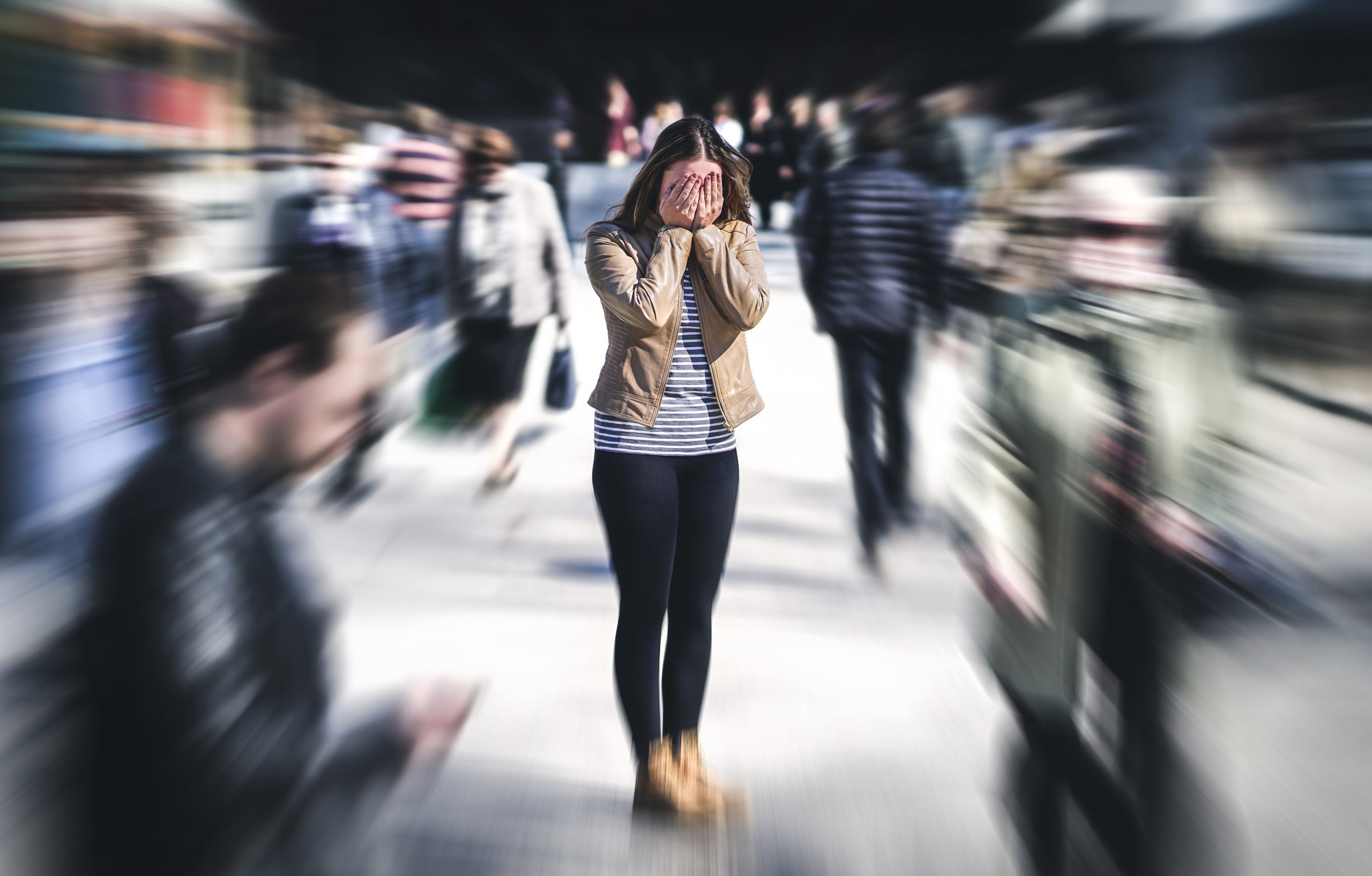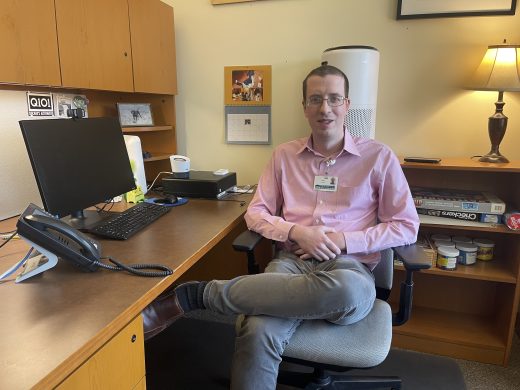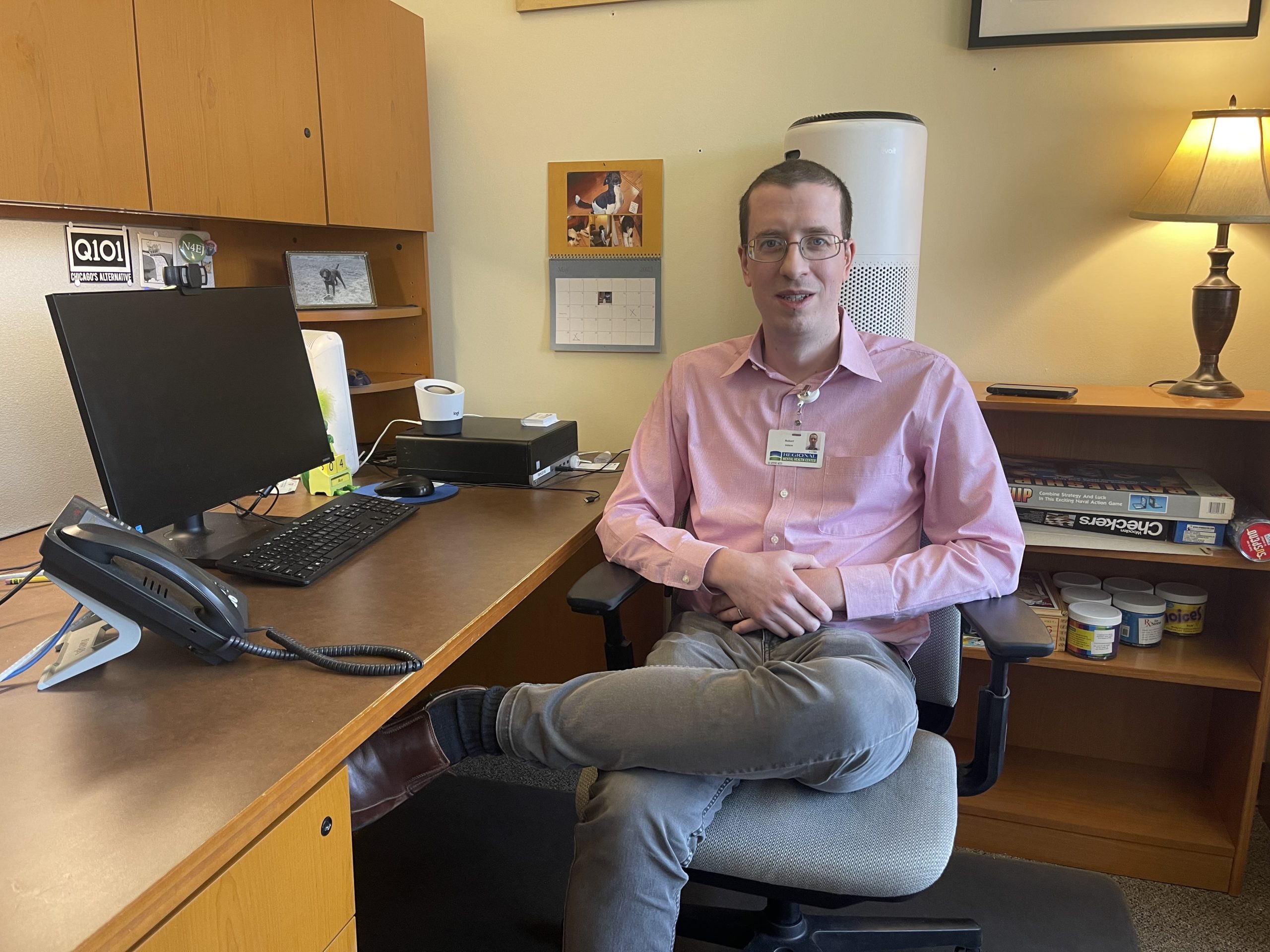
Regional Health Systems hosts the Road to Care Block Party for National Health Center Week
Jul 13 2023

Psychologist offers tips to navigate it; shares his personal journey.
Exactly three years ago, the U.S. was locking down in response to a virulent, largely mysterious virus that was spreading fast and overwhelming hospital emergency rooms on its way to killing more than 1.1 million people across the country.
In March of 2020, Robert Beedle was a new father, working part-time while completing his doctoral dissertation. He was organizing neighbors concerned about air pollution from a local business. His wife was returning to work after family leave. His parents were helping with childcare.
Then COVID turned his life upside down.
Beedle lost his job and the childcare his parents were providing. His dissertation work slowed. He put his community activism on hold and his wife shifted to working from home. Beedle shifted to full-time childcare provider for the couple’s daughter.
Over the next three years, he was in a rare position to watch the pandemic unfold: earning his doctorate in psychology and experiencing the pandemic in stressful, personal ways.
Today, the country largely has moved through the pandemic. Beedle is a postdoctoral psychologist at Regional Health Systems, able to assess the pandemic’s impact generally and personally and offer his thoughts on how to manage the ongoing effects.

Photo caption: Psychologist Robert Beedle
An important first step, he said, is to gauge if you’re experiencing pandemic-related anxiety or other psychological distress for two weeks or more. If so, obtaining a mental health evaluation, which RegionalHealth Systems provides, is crucial, Beedle said. Call 219-769-4005 for an appointment.
Whether COVID-related or not, for many people with mental health issues, talk therapy—which Regional Health Systems also provides—is the most effective treatment, Beedle said. The sooner therapy starts the faster it works, he added, but it’s a process that takes effect over multiple weeks.
Another effective step is simply “lowering the bar” on the pressure individuals may place on themselves, he said.
“In times when you’re under high distress without a lot of control,” Beedle said, “you really have to adjust your attitude.” He said placing less importance on housecleaning or keeping up social contacts, as examples, and paying more attention to taking care of yourself is beneficial in times of high stress.
Once an individual’s basic life needs are met, Beedle said, helping others can be another powerful way to recover in part by connecting with others.
“I would just encourage people to keep in mind that we all went through tremendous stress and disruption,” he said. “Even if you don’t need therapy, just talking with friends and family about the things that happened and the changes can be helpful or cathartic. Also, just be forgiving of people who might be having a tough time now and be forgiving of yourself.”
One important factor that Beedle noted is the recognition “that everyone had a different experience going through the pandemic.” Differences occurred depending on an individual’s living conditions and where they resided, he said. Also, different workplaces experienced varied impacts.
The different experiences unfolded in a wide range of ways: the devastation of losing a loved one or a job, the stress of keeping kids engaged in school or merely dealing with shortages at the grocery store—all against a backdrop of possibly catching COVID.
“It’s pretty uncontroversial that the pandemic placed a massive amount of psychological stress on everyone living in the United States,” Beedle said, “especially very early on.”
Research shows that psychological distress peaked in about April of 2020 in the U.S., decreased that summer then rose again in the winter of 2020-21, he said. Now almost all the psychological distress is gone, Beedle said.
“The tendency for humans is that we are going to adapt to our environment eventually,” he said, “and at this point, people have demonstrated a lot of resiliency, adapting in ways that make the most sense for their ideology and family structure.”
He remains perplexed by how rarely clients mention the pandemic or its effects.
Although most have moved on, the pandemic changed everyone, Beedle added. Many have re-assessed their jobs and lifestyles. His greatest concern is for people under the age of 25 and children who were six and older during the pandemic. They endured the worst of it, he said.
The global pandemic showed that “things can get really out of hand and disrupted quickly,”
Beedle said.
That experience has made people more mindful and appreciative of well-being and enjoying the moment.
“I’m changed forever because of the pandemic,” said Beedle, who welcomed a son in June of 2022. “It takes a lot more to really upset me. I also think the pandemic’s renewed my focus on my family, living day by day and appreciating what’s going on.”

Jul 13 2023

May 10 2023